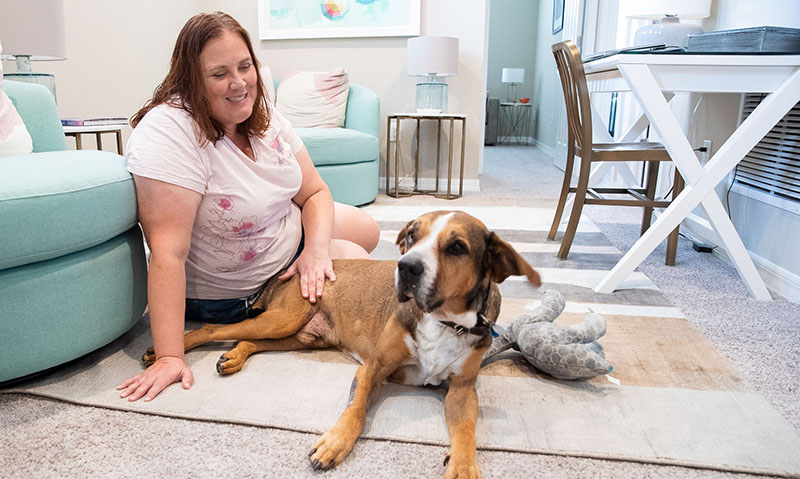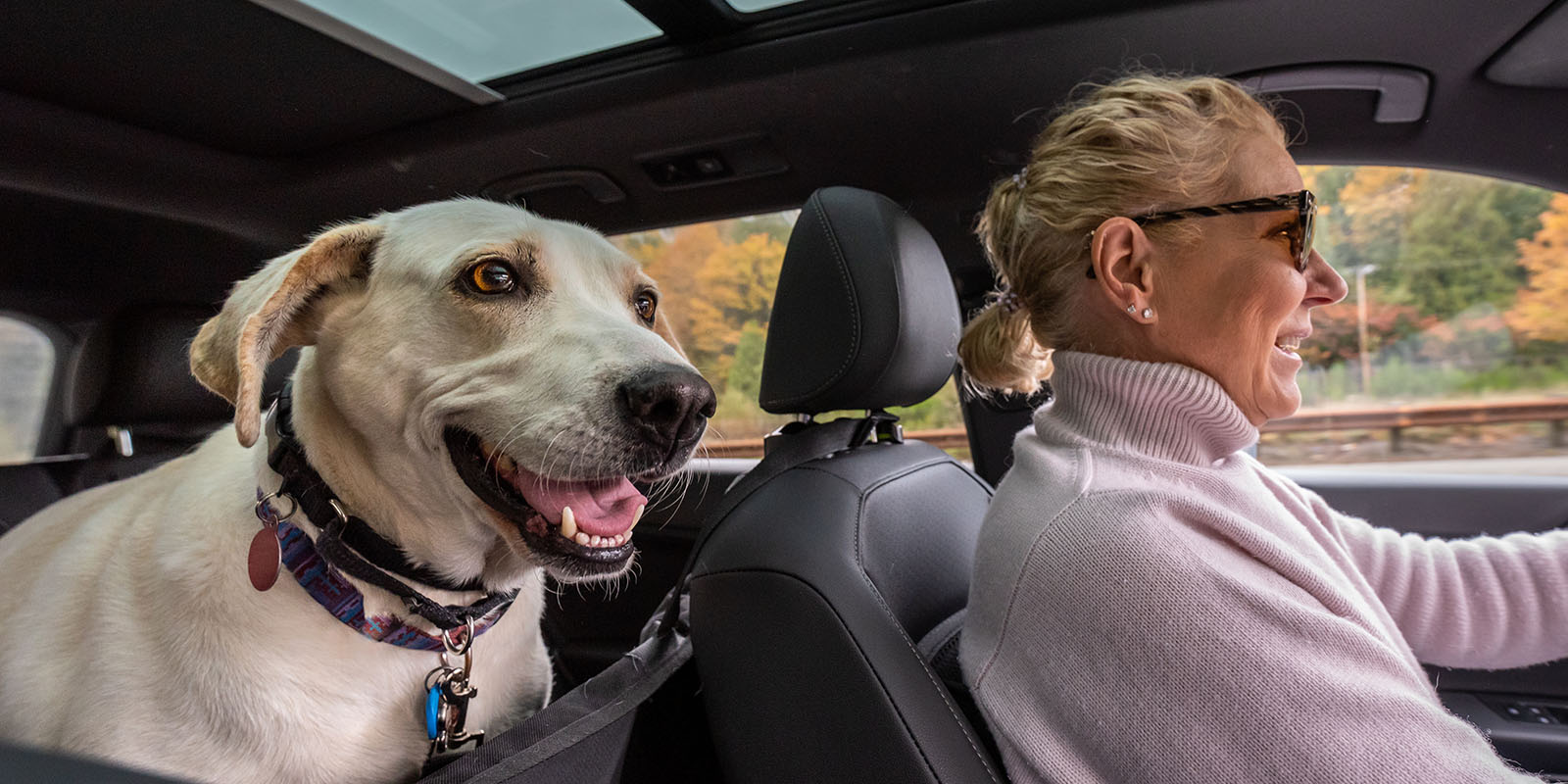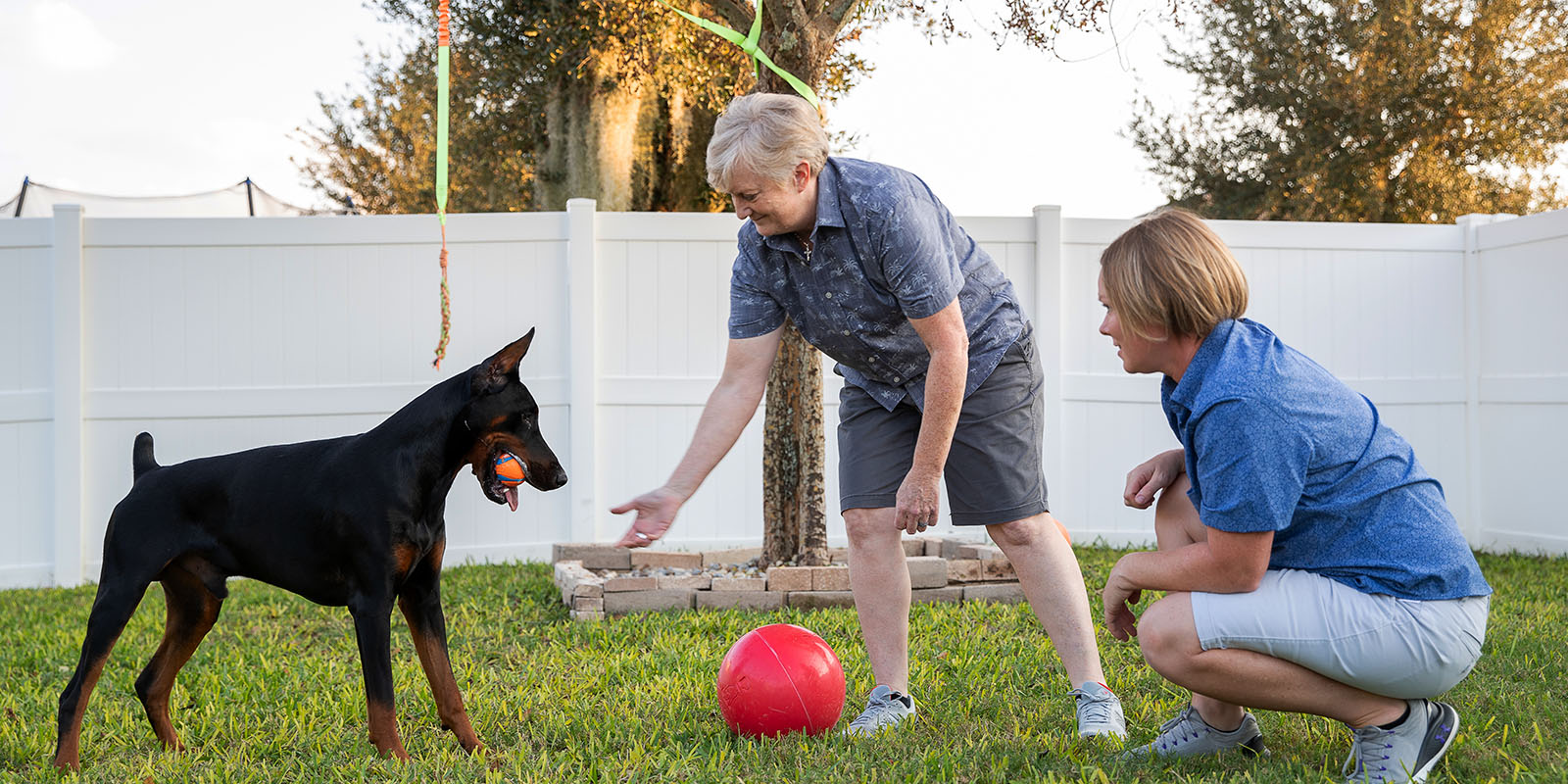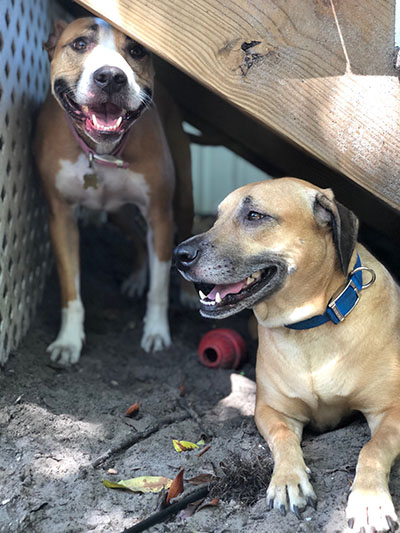Your senior dog is truly a special member of your family. Looking at the distinguished silver threads of fur on his face and the wisdom in his eyes, it’s safe to say he’s come a long way from his younger days of getting into puppy mischief and eating your shoes.
As your beloved friend ages, he’ll look to you for special care to ensure he can comfortably do the things he loves to do with you and your family and continue creating a lifetime of cherished memories.
Caring for a senior dog involves being mindful of his overall health and comfort levels in day-to-day activities, so you can recognize signs of illness and promote the best quality of life.
Common Conditions Affecting Senior Dogs
As your dog enters his senior years, you may notice him start to walk a bit more leisurely, respond to you a little more slowly, and enjoy more time lazily lounging in the sun.
It’s not always easy to tell the difference between subtle age-related decline and the emergence of a more serious illness. That’s why it’s a good idea to be familiar with the common conditions that affect senior pets and learn how to recognize potential warning signs.

Cognitive Dysfunction Syndrome and Dementia
Senior dogs can experience impaired mental function, similar to elderly humans with Alzheimer’s or dementia. Two common mental health conditions in senior dogs are:
Cognitive Dysfunction Syndrome (or “CDS”):
A progressive, evolving mental health condition associated with a series of changes that occur in the brain that can cause difficulty with thinking, recognition, memory, and learned behavior.
Dementia:
A later stage of CDS associated with more severe mental health symptoms.
Oftentimes, signs of mental health conditions are mistakenly chalked up to “old age.” However, these conditions are surprisingly common in senior dogs. Fifty percent of dogs over age ten will exhibit one or more symptoms of CDS or dementia.
If you’re able to monitor your pet carefully, achieve an early diagnosis, and treat the condition properly, you can keep your senior pet’s mind sharp well into their golden years.
Here are the signs of mental health conditions in dogs:
Disorientation:
Getting stuck behind furniture or doors, having difficulty getting around objects, failing to recognize familiar people or pets, or becoming lost in your home or yard.
Interaction:
Displaying a decreased interest in socializing and interacting with your family, and becoming irritable or aggressive with visitors, other animals, or familiar family members.
Sleep-wake cycles:
Appearing restless, pacing or continually waking up, and vocalizing excessively or abnormally throughout the night.
House-soiling, learning, and memory:
Responding less to previously learned commands or his name, experiencing decreased focus and increased distraction, eliminating inappropriately if previous house-training becomes forgotten.
Activity:
Playing and exercising less, and displaying repetitive behaviors such as circling, chewing, licking, or pacing.
Anxiety:
Acting more anxious when separated from you, and being more fearful of visual or auditory stimuli.
Osteoarthritis
Osteoarthritis (or “OA”) is a degenerative joint disease that causes pain and decreased mobility in senior dogs. It’s caused by the deterioration of cartilage in your dog’s joints, which is unfortunately common after years of activity and adventure.

The signs of OA can be treated and managed, so your dog can continue living a comfortable, productive life with you. Here are the signs of arthritis in dogs as it progresses:
Early Stages
- Reduced activity
- Lameness or stiffness
- Weight gain
- Reluctance to jump or climb stairs
- Slow to rise or difficulty lying down
- Licking/chewing on the affected joint(s)
Late Stages
- Persistent early stage symptoms
- Lack of appetite
- Muscle or weight loss
- Pressure sores
- Mental stress
- Constipation
- Excessive panting
- Inability to stand up and/or accidents in the home
Obesity
You’ve probably heard the importance of keeping your pet trim and healthy throughout his life, and it’s especially important in his old age. Overweight and obese pets are at increased risk of developing cardiovascular disease, diabetes, cancer, orthopedic disease, and more.
When you see your pet every day, it can be difficult to recognize when she’s gained a pound or two. But, in some cases, a pound or two can make a big difference. If your pet is at a healthy weight, you’ll easily be able to feel all of his ribs without seeing them. When viewed from the side, he’ll have an “abdominal tuck,” meaning there is a clear waistline.
Diabetes
Similar to humans, dogs can develop diabetes as they age. Diabetes mellitus occurs when the body cannot use glucose—the main source of energy for the body’s cells. Blood glucose levels are primarily controlled by insulin, which is a hormone made by the pancreas. Pets suffering from diabetes are either unable to use the insulin created by the pancreas or the pancreas does not produce enough (or any) insulin, so blood glucose levels rise to dangerous levels. Common signs of diabetes in dogs include:
- Increased thirst
- Increased urination
- Increased hunger
- Sudden weight loss
- Fatigue
- Thinning hair
- Cloudy eyes
Cancer
As dogs advance in their years, they’re more likely to develop cancer. While there are many forms of cancer, many are treatable with timely intervention. Early detection gives your pet the best chance for a positive outcome. Keep an eye out for these five signs that may indicate cancer development.
#1. Changes in appetite and activity
Older dogs naturally slow as they age, but an abrupt decline in activity or appetite can indicate cancer in some cases. Cancer takes a toll on the body, often making your pet feel weak and lethargic and stealing her appetite. Oral and abdominal masses can interfere with eating and digestion, also leading to a decreased appetite.
#2. Unexplained weight loss
If your dog has a good appetite, he shouldn’t lose weight unless something is interfering with normal body function. While other diseases can cause weight changes, cancer is also a top culprit of unexplained weight loss.
#3. Abnormal lumps and bumps
Not all lumps and bumps that pop up on your pet will be cancerous tumors; some may be benign masses. However, it’s a good idea to have all lumps and bumps checked out by a vet, especially if they appear suddenly, ooze, or grow rapidly.
#4. Vomiting and diarrhea
Although vomiting and diarrhea are two common signs of many illnesses in pets, they’re often symptoms of many forms of cancer as well.
#5. Limping
Your dog’s limp may be caused by OA or other joint or muscular conditions, however, it may also be an indicator of bone cancer, which is common in large dogs and often very painful.
Balance Issues
Sometimes senior dogs experience balance issues, which are commonly caused by vestibular disease. Simply stated, vestibular disease affects the part of the brain that promotes balance and correct abnormalities in your dog’s body positions. Balance issues worsen over time, so look for symptoms like:
Early Stages
- Falling
- Incoordination
- Head tilt
- Circling or rolling
- Stumbling or ”drunken” walking
- Rapid movement of eyes up-and-down or side-to-side
- Vomiting
- Lack of appetite
- Dull mentation
- Solitary confinement
Late Stages
- Persistent early stage symptoms
- Weight loss
- Reclusive behavior
- Pressure sores
- Diarrhea
- Seizures
- Pneumonia
Crisis Symptoms for Senior Dogs
While all of these conditions involve symptoms ranging from mild to severe, there are a few signs and behaviors that signal a medical emergency regardless of your dog’s diagnosis. Here are the symptoms which require immediate veterinary assistance:
- Difficulty breathing
- Prolonged seizures
- Uncontrollable vomiting/diarrhea
- Sudden collapse
- Profuse bleeding – internal or external
- Crying or whining from pain (learn how to know if your pet is in pain)
Giving Your Senior Pet the Love & Lifestyle He Deserves
As your pet reaches his golden years, he deserves a gold-standard of care.
He’ll appreciate the extra love and any lifestyle changes you make to accommodate his evolving health and wellness. Plus, your dog’s calmer demeanor and new appreciation for more R&R means the door is open for you to spend more quality time together and create fun memories.
Teach your old dog new tricks.
Practice little activities to keep your dog’s mind sharp in his senior years. Remember, the brain is a muscle and it can benefit greatly from daily exercise. Incorporate activities into your routine to add a stimulating mental nudge to your senior pet’s day:
- Serve meals by using food puzzles
- Learn new tricks and commands
- Create a toy rotation to keep his belongings fresh & exciting
- Change your walking routine by hiking a different trail or exploring a new part of town
Be mindful at feeding time.
While it’s tempting to spoil your senior with extra snacks and tasty treats, pay close attention to his nutritional needs. Senior dogs should maintain a healthy weight to promote optimal wellness. Also, it’s a good idea to make sure he’s eating the correct amount and type of food for his unique and evolving health goals.
Ease achy joints.
If you notice your pet is experiencing joint pain or decreased mobility, try to make your home as accommodating as possible. Consider added measures like:
- An orthopedic bed
- A safe heating pad designed for dogs
- Ramps to get in your vehicle or onto furniture more easily
Make memories.
You know your senior pet better than anyone else, and you likely spent many years learning his favorite things in life. Set aside time to do the things you know will put a smile on your favorite graying face – like a trip to the beach, a peaceful morning hike, or fetch with his treasured frisbee.
Take a trip to the vet.
Because your senior dog may be more prone to illness and joint pain, routine vet visits become increasingly more important with age. Keeping him up to date on lab work and any recommended diagnostic testing is a great way to catch any signs of disease early and begin treatment as soon as possible. Plus, your dog’s veterinarian can provide suggestions to help keep him comfortable and well in his golden years. (Just remember to give him an extra special treat after he’s done with his visit.)
Final Thoughts: Caring for Your Aging Dog
Whether your senior is newly adopted or a lifelong companion since puppyhood, he brings a great sense of calm and wisdom into your home. Senior dogs are often focused, well-mannered, and appreciative of all the simpler things in life.
Your dog rewarded you with companionship, love, and affection, and now is your chance to return the favor by ensuring his final chapter is the best chapter and paying extra close attention to his health and wellness.



